SIMPOSIUM 2022
Full video of the event
9 May 2022
If we used the million hectares of vineyard in Spain in the fight against climate change, we could slow down global warming. Regenerative viticulture is the only vineyard model based on the carbon cycle, maximizing the vines’ capacity for absorbing atmospheric CO2 and turning them into huge carbon sinks. This CO2 stored in the ground causes the soils to recover their natural fertility and balance, makes them more resistant to drought, keeps them from eroding, and promotes biodiversity.
The second Regenerative Viticulture Conference has the double aim of raising awareness about the need for a paradigm shift in vineyard management and disseminating the principles of regenerative agriculture applied specifically to viticulture, drawing on the experiences and know-how of national and international experts and vine growers who have already set out on this path.
The event, promoted by the Regenerative Viticulture Association with support from Vilafranca del Penedès City Council and the Autonomous Government of Catalonia, is aimed at vine growers, farmers, winemakers, oenologists, sommeliers, and anyone committed to the fight against climate change.
Note: The event will be broadcast via this web page on the date and time stated. If you would like to attend in person, please write to info@viticulturaregenerativa.org.
SIMPOSIUM 2022
Full video of the event
SIMPOSIUM 2022
Full video of the event
JOEL SALATIN
Why do we need a paradigm shift in agriculture? (English)
JOEL SALATIN
Why do we need a paradigm shift in agriculture? (English)
JOSEP RAMON SAINZ DE LA MAZA
The reorganization of the soil during the transition (Spanish, with subtitles)
JOSEP RAMON SAINZ DE LA MAZA
The reorganization of the soil during the transition (Spanish, with subtitles)
DRA. DANIA GARCÍA
The diversity and functionality of the soil microbiota (Spanish, with subtitles)
DRA. DANIA GARCÍA
The diversity and functionality of the soil microbiota (Spanish, with subtitles)
PABLO BORRELLI
Holistic management (Spanish, with subtitles)
PABLO BORRELLI
Holistic management (Spanish, with subtitles)
MANEL BADIA
Keyline design: maximizing water resources and regenerating the soil in viticulture (Spanish, with subtitles)
MANEL BADIA
Keyline design: maximizing water resources and regenerating the soil in viticulture (Spanish, with subtitles)
JOHAN REYNEKE
The experience of a South African viticultor (English)
JOHAN REYNEKE
The experience of a South African viticultor (English)
MIGUEL TORRES MACZASSEK
Association of Regenerative Viticulture: inspiring cases (Spanish, with subtitles)
MIGUEL TORRES MACZASSEK
Association of Regenerative Viticulture: inspiring cases (Spanish, with subtitles)
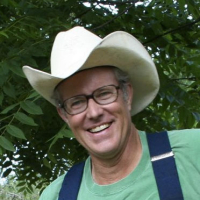
Joel Salatin
Joel Salatin and his family own Polyface Farm in Virginia’s Shenandoah Valley, producing beef, pork, chickens (meat and eggs), turkey, rabbit, and lamb on pasture and direct marketed to about 8,000 families and 50 wholesale or institutional accounts. The family took a gullied rock pile purchased in 1961 and converted it to the most productive farm in the region by using natural symbiosis and stacking. Author of 15 books, he is also editor of The Stockman Grass Farmer, the world’s leading trade publication for pasture-based livestock production.

Joel Salatin
Joel Salatin and his family own Polyface Farm in Virginia’s Shenandoah Valley, producing beef, pork, chickens (meat and eggs), turkey, rabbit, and lamb on pasture and direct marketed to about 8,000 families and 50 wholesale or institutional accounts. The family took a gullied rock pile purchased in 1961 and converted it to the most productive farm in the region by using natural symbiosis and stacking. Author of 15 books, he is also editor of The Stockman Grass Farmer, the world’s leading trade publication for pasture-based livestock production.
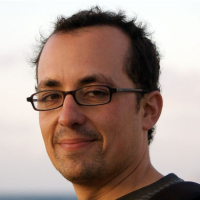
Josep Ramon Sainz de la Maza
Agricultural engineer and regenerative agriculture consultant through GeaOrgànica to improve farm management, soil fertility, and pest and disease control. He holds a master’s degree in organic agriculture and livestock farming from the University of Barcelona and is a farmer and former conventional stockbreeder.

Josep Ramon Sainz de la Maza
Agricultural engineer and regenerative agriculture consultant through GeaOrgànica to improve farm management, soil fertility, and pest and disease control. He holds a master’s degree in organic agriculture and livestock farming from the University of Barcelona and is a farmer and former conventional stockbreeder.
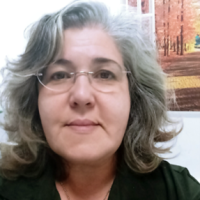
Dra. Dania García Sánchez
Biologist and doctor of molecular biology of microorganisms. Professor in the Mycology and Environmental Microbiology Unit of the Faculty of Medicine and Health Sciences at Rovira i Virgili University. She began her career as a researcher in 1992 in Havana (Cuba), going on to earn her PhD in 2005 in Tarragona, and regularly works with leading centres in the USA and Netherlands. Her work includes studies on fungal diversity in different ecosystems and substrates and the use of fungi in agricultural biotechnology as bio controllers of pests and diseases or in soil bioremediation.

Dra. Dania García Sánchez
Biologist and doctor of molecular biology of microorganisms. Professor in the Mycology and Environmental Microbiology Unit of the Faculty of Medicine and Health Sciences at Rovira i Virgili University. She began her career as a researcher in 1992 in Havana (Cuba), going on to earn her PhD in 2005 in Tarragona, and regularly works with leading centres in the USA and Netherlands. Her work includes studies on fungal diversity in different ecosystems and substrates and the use of fungi in agricultural biotechnology as bio controllers of pests and diseases or in soil bioremediation.
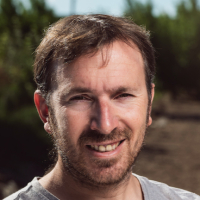
Manel Badia
Expert in Keyline Design, Holistic Management and Regenerative Agriculture, accredited by the Savory Institute. CEO and founder of the Manel Badia team, Keyline Farm Design. We make global designs of organic and regenerative agriculture, these designs provide a solution to desertification and climate change. We recover the water cycle, capture carbon and regenerate the land. At the same time we produce healthy, nutritious food and improve efficiency and quality of life.

Manel Badia
Expert in Keyline Design, Holistic Management and Regenerative Agriculture, accredited by the Savory Institute. CEO and founder of the Manel Badia team, Keyline Farm Design. We make global designs of organic and regenerative agriculture, these designs provide a solution to desertification and climate change. We recover the water cycle, capture carbon and regenerate the land. At the same time we produce healthy, nutritious food and improve efficiency and quality of life.
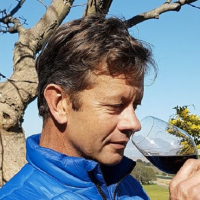
Johan Reyneke
South African holistic winegrower. Owner of the only certified biodynamic vineyard in the country, he operates the 120 hectares of the family farm from a holistic approach, where the vineyards create synergies with other crops and livestock. His studies in philosophy let him to believe that humans are simply part of the natural order, and this thought inspired him to look for ways to work with nature, rather than against it, in agriculture.

Johan Reyneke
South African holistic winegrower. Owner of the only certified biodynamic vineyard in the country, he operates the 120 hectares of the family farm from a holistic approach, where the vineyards create synergies with other crops and livestock. His studies in philosophy let him to believe that humans are simply part of the natural order, and this thought inspired him to look for ways to work with nature, rather than against it, in agriculture.
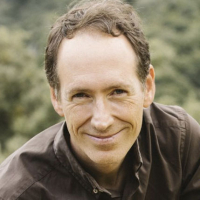
Miquel Torres
CEO and 5th generation of Familia Torres, a family winery founded 150 years ago in Penedès. It currently has 900 hectares of vineyards with organic certification in the Penedès, Priorat, Conca de Barberà and Costers del Segre. Strongly committed to the fight against climate change since 2008, Miguel Torres has wanted to go one step further and is leading an ambitious five-year agricultural plan to implement regenerative practices in more than 500 hectares of organic vineyards in Catalonia.

Miquel Torres
CEO and 5th generation of Familia Torres, a family winery founded 150 years ago in Penedès. It currently has 900 hectares of vineyards with organic certification in the Penedès, Priorat, Conca de Barberà and Costers del Segre. Strongly committed to the fight against climate change since 2008, Miguel Torres has wanted to go one step further and is leading an ambitious five-year agricultural plan to implement regenerative practices in more than 500 hectares of organic vineyards in Catalonia.